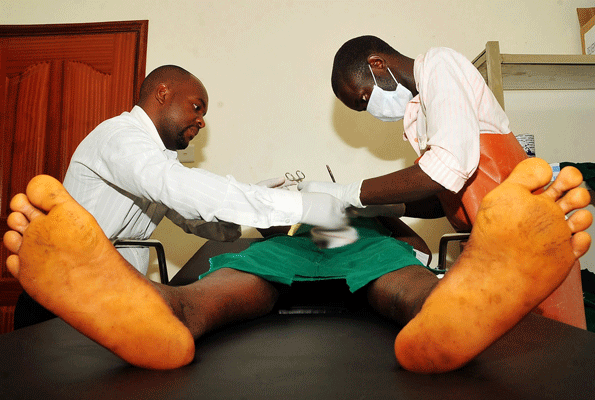What is penile circumcision?
Penile circumcision is the surgical removal of the foreskin—a retractable fold of skin that covers the head of the penis. Circumcision is most commonly performed on infants, although it can be done later in life too. It is performed for a variety of social, religious, cultural and health reasons.
How does circumcision of the penis reduce the risk of HIV infection?
The foreskin is highly vulnerable to HIV infection. It is the main route by which HIV enters a man’s body to cause infection during sexual intercourse. Removing the foreskin makes it more difficult for HIV to find a way into the body during sex.
The foreskin is highly vulnerable to HIV infection for several reasons. First, the foreskin is delicate and can sustain small tears during sex. These tears may allow HIV to enter the body more easily. Tears also cause inflammation, which can further increase the risk of HIV transmission. In addition, there is a higher concentration of cells that HIV likes to infect (called Langerhans cells) in the foreskin than in other parts of the penis. Finally, HIV-infected fluids can become trapped under the foreskin and remain there after sex.
Does circumcision of the penis reduce the risk of HIV transmission?
For men who have sex with women: Penile circumcision does provide protection for HIV-negative men who are at risk of HIV infection through vaginal sex with women. Research studies in East and South Africa found that circumcised heterosexual men were approximately 50% to 60% less likely to become infected with HIV than uncircumcised men. The circumcised men were also at reduced risk of herpes, syphilis and human papillomavirus (HPV).
For women who have sex with men: Penile circumcision does not provide protection for HIV-negative women who are at risk of infection through vaginal sex with men. Although an HIV-negative circumcised man is less likely to become infected with HIV through vaginal sex, an HIV-positive circumcised man is not less likely to pass HIV to others.
For men who have sex with men (MSM): Penile circumcision does not provide protection for HIV-negative men who are at risk of HIV infection through insertive and receptive anal sex (topping and bottoming) with other men.


